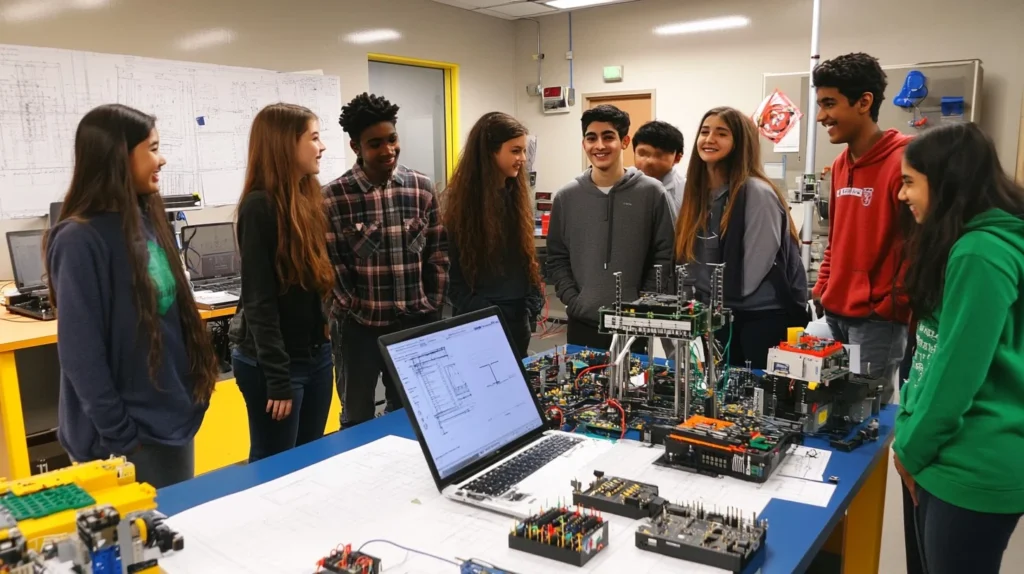In today’s fast-evolving global landscape, education is taking a transformative turn. Traditional classroom-based learning, once the cornerstone of academic success, is being complemented—and often replaced—by experiential learning and immersive study abroad programs. This shift emphasizes hands-on, real-world experiences that equip students with practical skills, cross-cultural awareness, and global perspectives essential for thriving in a connected world.
What Is Experiential Learning?
Experiential learning is a dynamic educational approach where students learn through active participation and reflection on real-world experiences. Unlike passive learning styles, experiential learning immerses students in their subject matter, allowing them to apply theories to practical situations. This method goes beyond textbooks and lectures, fostering skills such as problem-solving, adaptability, and critical thinking.
The Rising Popularity of Study Abroad Programs with Experiential Learning
Study abroad programs have evolved significantly, moving from purely academic exchanges to structured experiences that merge education with life-changing, hands-on exposure. These programs place students in foreign environments that challenge them to adapt, communicate, and collaborate across cultures. Through internships, service projects, cultural immersion, and industry visits, students engage deeply with their host countries and gain valuable insights into global industries and workplaces.
Key Benefits of Combining Experiential Learning with Study Abroad
1. Real-World Skill Development
Students gain practical skills relevant to their fields by working on projects and facing real challenges. For instance, business students might solve actual business cases in international companies, while engineering students could participate in local infrastructure projects. This real-world experience enhances their resumes and boosts employability.
2. Cultural Competence and Global Mindset
Living and learning abroad exposes students to diverse cultures and perspectives. This immersion nurtures empathy, cultural sensitivity, and a global mindset—qualities increasingly sought by employers in international markets.
3. Language Proficiency
Being immersed in a foreign country accelerates language learning far beyond classroom instruction. Students absorb nuances, idioms, and informal speech, improving fluency and communication skills.
4. Personal Growth and Confidence
Adapting to a new culture and overcoming the challenges of living abroad help students build resilience and confidence. This personal growth often translates into enhanced leadership abilities and independence.
5. Networking and Career Opportunities
Experiential study abroad programs often include interactions with local professionals, internships, and collaborative projects that expand students’ international networks, opening doors to global career paths.
Innovative Structures in Modern Study Abroad Programs
Leading universities and organizations are designing programs that intentionally blend academic rigor with experiential components:
- Community Engagement and Service Learning: Students contribute to local projects, gaining insights into societal issues while creating positive impacts.
- Cultural Immersion: Homestays, local internships, and cultural workshops allow students to live like locals and understand cultural contexts deeply.
- Collaborative Projects: Working alongside local students and professionals fosters teamwork and cross-cultural communication skills.
- Industry Sessions and Company Visits: Exposure to international businesses allows students to observe and participate in real-world industry practices.
Why Are Employers Valuing This Shift?
Businesses today operate in global markets with diverse teams and international clients. Graduates who have experienced immersive learning abroad often demonstrate greater adaptability, cross-cultural communication skills, and problem-solving abilities. Employers recognize these competencies as critical differentiators, making experiential learning abroad highly attractive on resumes.
Navigating the Challenges
Despite its many benefits, experiential study abroad can pose logistical, cultural, and emotional challenges—such as adjusting to a new environment or overcoming language barriers. Successful programs address these challenges through:
- Pre-departure training to prepare students culturally and practically
- Strong partnerships with host communities and organizations for smoother integration
- Support systems including mentoring, counseling, and reflective activities to help students process experiences
Real-World Examples of Experiential Study Abroad Impact
Programs like global immersions in major world cities (London, New York, Paris) offer students masterclasses at reputed universities alongside industry tours to companies like Google, BMW, and Bloomberg. Students gain first-hand exposure to cutting-edge practices, interact with professionals, and engage with local culture, enriching their academic knowledge with unmatched practical insights.
The Future of Experiential Learning and Study Abroad
The trend toward experiential learning and immersive study abroad programs is set to accelerate, fueled by globalization and evolving employer demands. Hybrid learning models combining digital and in-person experiences, and expanding programs in emerging destinations, will continue to thrive. Educational institutions are increasingly prioritizing skills-based education, mental health support, and global citizenship development to prepare students for a complex, interconnected future.
Conclusion
Experiential learning paired with study abroad programs is transforming education into a more practical, immersive, and impactful journey. By stepping beyond the classroom to engage directly with the world, students develop essential skills, cultural awareness, and confidence that prepare them for successful careers and meaningful global contributions. If you’re considering studying abroad, look for programs that offer rich experiential learning opportunities—you’ll gain far more than just a degree.
Call to Action:
Ready to elevate your education and career? Explore study abroad programs that combine hands-on learning with cultural immersion. Embrace the world as your classroom and prepare to lead with a truly global perspective!






